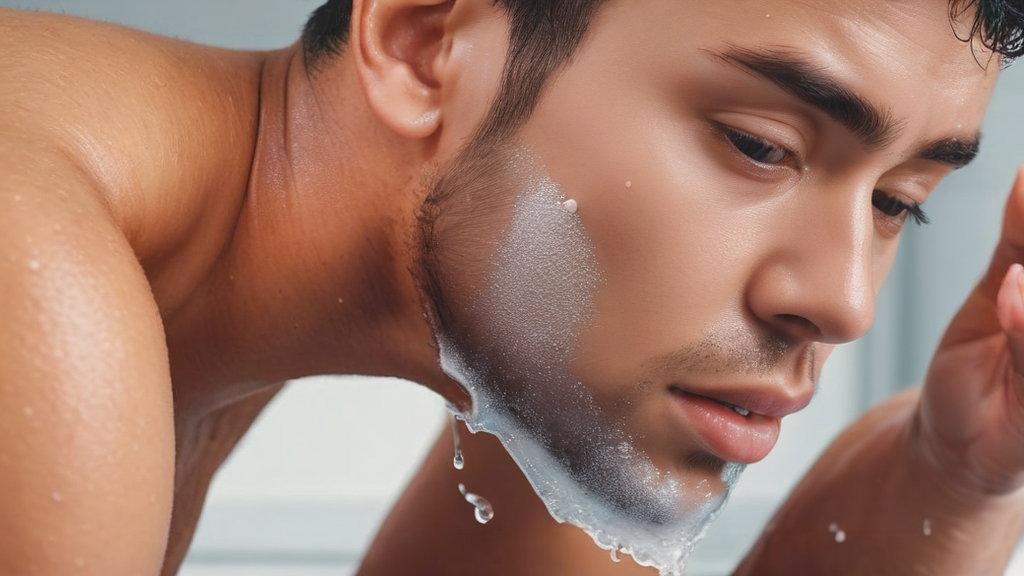Myth: You can’t wash your face in the shower
Although there are those who think that washing your face should not be part of your shower routine, it can be a positive habit as long as it is done carefully. According to Shasa Hu, a licensed dermatologist and co-founder of skin care consultation service BiaLife, washing your face in the shower can promote deeper exfoliation and unclog pores. As long as you don’t use very hot water or harsh soaps, washing your face in the shower can save time and water, and provide a deeper cleanse that will prepare your skin for the rest of your skin care routine.
Myth: You should wash your face twice a day
Whether you need to wash your face twice a day depends on your skin type and what needs to be removed. According to dermatologist Hadley King, dry or sensitive skin can cleanse once a night, while oily skin needs to cleanse at least twice a day. However, if you exercise with a lot of sweat or wear a lot of makeup, it is recommended to always wash your face after the gym or before going to bed. Cleansing before bed is not only recommended to remove makeup, but also to remove dirt and pollution that accumulates on the skin during the day. These particles can cause oxidative damage and contribute to collagen degradation and the appearance of premature wrinkles.
Myth: Products are only effective if you feel a slight burning or tightness in your face after using them.
The motto ‘no pain, no gain’ doesn’t apply to skin care, warns Audrey Kunin, dermatologist and founder of clinical skin care brand DERMAdoctor. When the skin is burned or irritated by skin care ingredients, the skin’s protective acid mantle is disrupted, which can lead to increased sensitivity and even skin infection. However, some acids and prescription retinol products may cause a slight burning or peeling sensation until your skin adjusts to them. In general, these symptoms subside as the active ingredient rebalances cell renewal. If you are unsure whether your skin’s reaction to a product is normal, consult a dermatologist before continuing to use it.
Myth: Washing your face with soap and water is enough as a routine.
According to Rachel Nazarian, a dermatologist in New York, regular soap is not suitable for cleansing the skin, as it removes natural oils, alters the skin’s pH, and damages the skin barrier, which can lead to dryness and irritation. Instead, she recommends washing the skin with a gentle, unscented cleanser that offers a deep clean and suits your skin type.
Myth: Scrubbing with a cleaning brush is the best way to get a deep clean
Contrary to popular belief, scrubbing with a wipe or mechanical devices does not remove oil or makeup polymers from the skin’s surface. According to Shasa Hu, this type of aggressive mechanical exfoliation can lead to clogged pores and become a vicious cycle. Mechanical exfoliants can also cause microscopic cracks in the skin and increase the risk of an allergic reaction or irritation. If scrubbing is necessary, it is recommended to use a soft muslin cloth or a gentle exfoliating cleanser.
Myth: You have acne because you don’t wash your face every day.
Although keeping your skin clean helps prevent acne breakouts, there are other factors, such as genetics and hormones, that can cause acne. According to Hadley King, if you have oily, acne-prone skin, you may have more clogged pores and breakouts if you don’t wash your face regularly. However, if your skin is not especially oily or acne-prone, not washing your face every day is not likely to cause it.
Myth: You shouldn’t use a washcloth to dry your face.
Drying your face with a washcloth may only be problematic if the cloth is contaminated with bacteria, yeast, or fungus, or if it is so abrasive that it causes irritation. However, according to Hadley King, it’s usually fine to use a clean cloth on your face if it dries gently without rubbing.
Myth: You don’t need to remove makeup before washing your face.
According to Shasa Hu, makeup removal should be the first step in your skin care routine. Makeup contains pigments, preservatives, minerals and metals that can clog pores if left on for too long and can prevent the penetration of skin care products. Therefore, it is essential to remove makeup as the first step in your nighttime routine.
Myth: it is enough to ‘wash’ your face with a makeup remover wipe
While removing makeup should be the first step in your nighttime routine, it shouldn’t be the only one. According to Rachel Nazarian, makeup remover wipes remove much of the bacteria, dirt, and oil, but they also leave behind a trail of residue. This can lead to acne and infected glands, especially around the eyelids and eyelashes. A proper facial cleansing requires a water-based rinse to completely cleanse.
Myth: you don’t have to wash your hands before washing your face
Even if your hands don’t look dirty, it’s always best to wash them before touching your face. According to Shasa Hu, hands come into contact with surfaces such as keyboards, phones and steering wheels, which can contain bacteria and chemicals that can cause skin and eye irritations or infections, especially in people prone to eczema.
